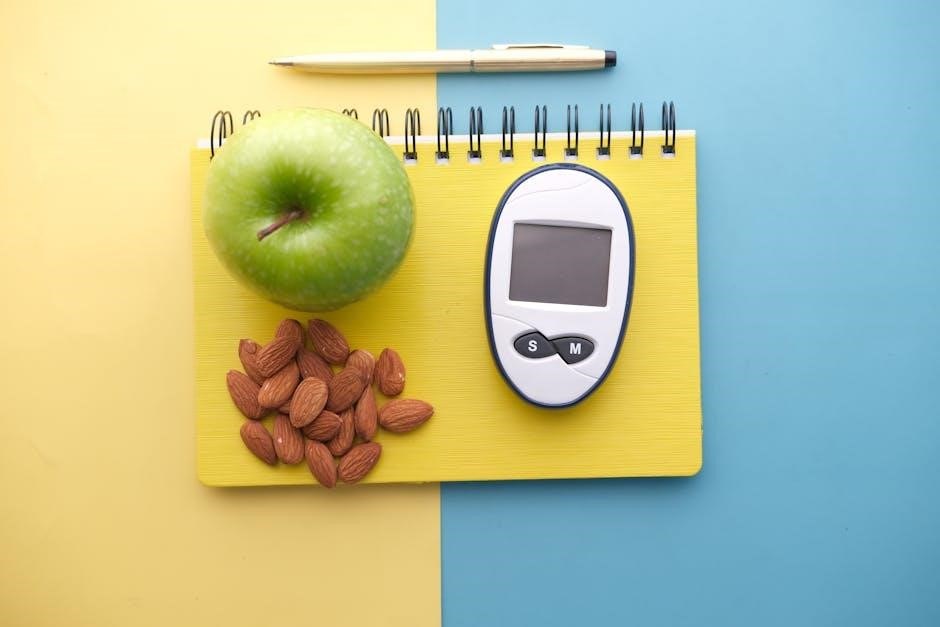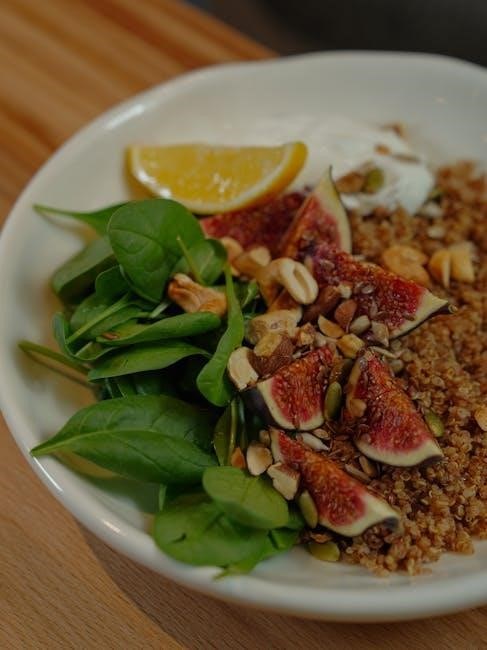A hormone balancing diet plan is a natural approach to resetting your body’s hormonal equilibrium, promoting overall health and vitality. By focusing on nutrient-rich foods, this plan helps address symptoms of hormonal imbalances, such as fatigue, weight fluctuations, and mood swings. It’s a holistic solution that supports your body’s natural processes, offering a sustainable way to rejuvenate energy and well-being. Discover how this diet can empower you to take control of your health and restore balance naturally.
Understanding the Importance of Hormone Balance
Hormone balance is crucial for maintaining optimal health, as hormones regulate vital bodily functions such as metabolism, energy levels, and reproductive processes. An imbalance can lead to symptoms like fatigue, weight fluctuations, and mood swings, impacting overall well-being. Diet plays a significant role in restoring equilibrium by influencing inflammation, blood sugar levels, and nutrient absorption. A well-structured hormone balancing diet plan helps mitigate these issues, supporting the body’s natural processes. By focusing on whole, nutrient-rich foods, individuals can promote healthy hormone production and alleviate symptoms associated with imbalances. This approach not only enhances physical health but also improves mental clarity and vitality, making it a cornerstone of long-term wellness.

How Diet Impacts Hormone Production
Diet significantly influences hormone production by providing the building blocks for hormone synthesis and regulating bodily functions. Nutrient-rich foods, such as whole grains, fruits, and vegetables, supply essential vitamins and minerals that support endocrine health. Protein and healthy fats are crucial for producing hormones like estrogen and testosterone. Conversely, processed foods and sugars can disrupt hormone balance by causing inflammation and insulin spikes. A well-balanced diet helps maintain stable blood sugar levels, reducing the risk of hormonal imbalances. Additionally, staying hydrated and limiting caffeine and alcohol supports optimal hormone function. By making informed dietary choices, individuals can positively impact their hormonal health and overall well-being.

Key Foods for Hormone Balance
Leafy greens, berries, nuts, seeds, avocados, whole grains, and fatty fish are essential for hormone balance. These foods provide vitamins, minerals, and healthy fats that support hormone production and overall health.
Protein-Rich Foods for Muscle and Bone Health
Protein-rich foods are essential for muscle repair, bone strength, and hormone regulation. Greek yogurt, chicken, fish, eggs, and legumes are excellent sources of protein. These foods provide amino acids, which are vital for hormone synthesis. Incorporating lean meats like turkey and chicken supports muscle growth and bone health. Fatty fish, such as salmon, offer omega-3 fatty acids, which reduce inflammation and promote hormonal balance. Eggs are rich in vitamin D and cholesterol, necessary for hormone production. Legumes, like lentils and beans, provide plant-based protein and fiber, aiding digestion and blood sugar stability. Including these protein-rich foods in your diet ensures optimal muscle function, bone density, and overall hormonal well-being. They are foundational to a hormone-balancing diet plan, supporting long-term health and vitality.
Healthy Fats and Their Role in Hormone Production
Healthy fats are vital for hormone production and balance. Foods like avocados, nuts, seeds, olive oil, and fatty fish provide essential fatty acids that support endocrine function. Omega-3 fatty acids from salmon and flaxseeds reduce inflammation, which can disrupt hormone levels. Cholesterol, found in eggs and grass-fed meats, is a building block for steroid hormones, including estrogen and testosterone. Incorporating these fats into your diet aids in the absorption of fat-soluble vitamins, such as vitamin D, which also supports hormone health. By including these nutrient-dense fats, you promote optimal hormone production and overall well-being. They are a cornerstone of a hormone-balancing diet plan, ensuring your body functions at its best.
Fresh Fruits, Vegetables, and Whole Grains
Fresh fruits, vegetables, and whole grains are essential for supporting hormone balance. They provide vital vitamins, minerals, and antioxidants that nourish the endocrine system. Leafy greens like spinach and kale, along with cruciferous vegetables such as broccoli and Brussels sprouts, contain compounds that support detoxification, a key process for hormone regulation; Berries and citrus fruits are rich in vitamin C, which aids in adrenal function. Whole grains like quinoa, brown rice, and oats offer fiber and B vitamins, which stabilize blood sugar and support hormone metabolism. Incorporating these foods into your diet promotes a balanced gut microbiome, reduces inflammation, and fosters an environment for optimal hormone production. They are foundational to a hormone-balancing diet plan, ensuring long-term health benefits.

7-Day Hormone Balancing Meal Plan
A 7-day hormone balancing meal plan provides a structured approach to reset your hormones. It includes healthy replacements like green tea for coffee and kombucha for alcohol, promoting improved energy and reduced inflammation while supporting hormonal equilibrium.

Sample Day Overview
A sample day on a hormone balancing diet plan begins with a nutrient-rich breakfast, such as a berry chia pudding or a smoothie packed with greens and protein. Mid-morning, a snack like Greek yogurt with almonds provides sustained energy. Lunch might feature a quinoa salad with grilled chicken, mixed greens, and a light olive oil dressing. Afternoon snacks could include fresh fruit or raw vegetables with hummus; Dinner focuses on lean proteins, such as baked fish or turkey, paired with steamed vegetables and whole grains. The plan emphasizes replacing unhealthy options like processed sugars with raw honey and swapping coffee for green tea to reduce inflammation and support hormonal equilibrium throughout the day.

Breakfast, Snack, Lunch, and Dinner Ideas
Breakfast options include chia pudding with berries or a green smoothie blended with spinach, avocado, and protein powder. Snacks like Greek yogurt with almonds or sliced veggies with hummus keep energy levels steady. Lunch ideas feature quinoa salads with grilled chicken, mixed greens, and olive oil dressing, or hearty soups with lean turkey and vegetables. Dinners focus on balanced meals such as baked salmon with steamed broccoli or roasted chicken with sweet potatoes and green beans. Each meal is designed to provide essential nutrients, supporting hormonal balance while satisfying your appetite and promoting overall well-being throughout the day.

21-Day Hormone Balance Diet Plan
This structured plan replaces coffee with green tea, alcohol with kombucha, and processed sugar with raw honey. It offers a detailed guide to reset hormones and improve overall health.
Structuring Your Meals for Sustained Balance
A well-structured meal plan is crucial for maintaining hormonal equilibrium. Start your day with a balanced breakfast, such as oatmeal with berries and nuts, to stabilize blood sugar. Include protein-rich meals like grilled chicken or fish, paired with whole grains and vegetables, to support hormone production. Incorporate healthy fats, such as avocado or olive oil, to aid in nutrient absorption. Snacks like Greek yogurt with almonds or fresh fruits can help keep energy levels steady. Avoid processed sugars and opt for natural sweeteners like raw honey. Stay hydrated with herbal teas or kombucha to support detoxification. By following this structured approach, you can maintain hormonal balance, improve energy levels, and enhance overall well-being. Meal prepping and variety are key to staying consistent and nourished throughout the 21-day plan.
Replacing Unhealthy Options with Nutritious Alternatives
Swapping unhealthy choices for nutrient-dense alternatives is essential for hormone balance. Replace processed sugars with natural sweeteners like raw honey or monk fruit. Trade refined carbohydrates for whole grains, such as quinoa or brown rice, to stabilize blood sugar. Instead of consuming alcohol, opt for kombucha, which supports gut health. Coffee can be replaced with green tea, rich in antioxidants that promote hormonal equilibrium. Choose healthy fats like avocado, nuts, and olive oil over processed fats to reduce inflammation. Incorporate fresh fruits and vegetables to provide essential vitamins and minerals. These small changes can significantly impact hormone health and overall well-being, fostering a balanced and sustainable diet plan.

Grocery List and Meal Planner Essentials
Stock your kitchen with fresh produce, lean proteins, healthy fats, and whole grains. Include leafy greens, berries, nuts, seeds, avocados, olive oil, wild-caught fish, and pasture-raised eggs. These essentials support hormone health and provide structure for balanced meals.
Stocking Your Kitchen for Hormone Health
Creating a hormone-friendly kitchen starts with nutrient-dense ingredients. Focus on fresh leafy greens, berries, nuts, seeds, avocados, olive oil, wild-caught fish, and pasture-raised eggs. Include whole grains like quinoa, brown rice, and oats for fiber and sustained energy. Herbs and spices like turmeric, ginger, and cinnamon add flavor while supporting hormonal balance. Healthy fats, such as avocados and flaxseeds, are crucial for hormone production. Incorporate fermented foods like kimchi and yogurt for gut health, which is closely linked to hormone regulation. Avoid processed sugars, artificial additives, and unhealthy oils. Instead, opt for natural sweeteners like raw honey and maple syrup. A well-stocked kitchen makes preparing balanced, hormone-supportive meals simple and enjoyable.
Practical Tips for Sticking to Your Diet Plan
Sticking to a hormone balancing diet plan requires commitment and strategic planning. Start by meal prepping to save time and ensure healthy choices. Plan your meals weekly, focusing on fresh, whole ingredients. Set realistic goals and celebrate small achievements to stay motivated. Keep your meals simple yet flavorful to avoid boredom. Stay hydrated with water and herbal teas, as hydration supports hormonal balance. Incorporate healthy snacks like nuts, seeds, and fruits to prevent hunger-induced poor decisions. Practice mindful eating by savoring each bite. Track your progress and adjustments in a journal to identify what works best for you. Consistency is key, so make this plan a sustainable lifestyle change for long-term hormonal health.
